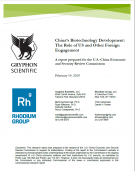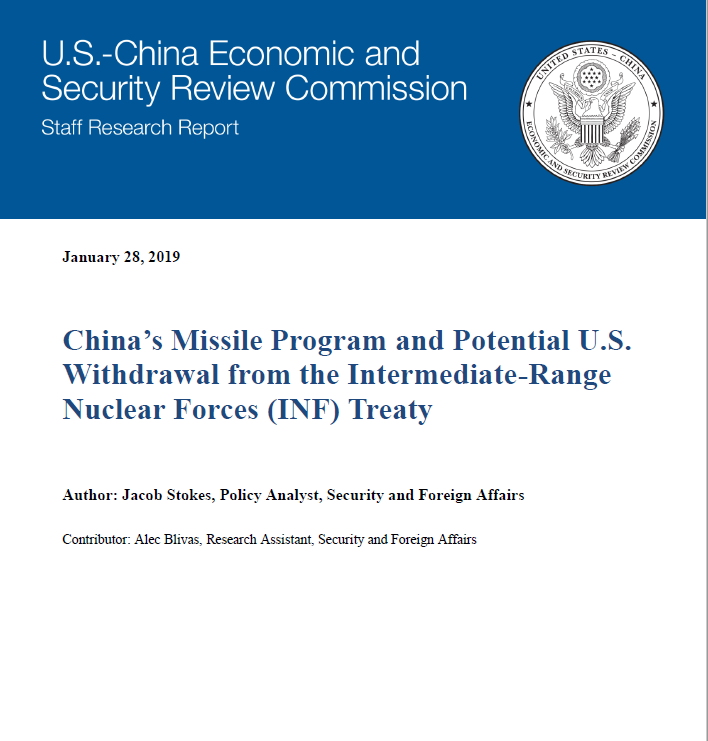×
Filter Results
Filter Results


Contracted Research
The U.S.-China Economic and Security Review Commission released a report entitled China’s Biotechnology Development: The Role of U.S. and Other Foreign Engagement, prepared for the Commission by Gryphon Scientific and Rhodium Group. The report examines the development of China’s biotechnology industry and the role foreign trade, investment, and other linkages—particularly with the United States—have played in its evolution.


Staff Paper
The Trump Administration cited China as a major reason behind its decision to announce U.S. intentions to withdraw from the 1987 Intermediate-Range Nuclear Forces (INF) Treaty with Russia. China is not a party to the INF Treaty, which has allowed Beijing to rapidly expand its missile arsenal as part of a military strategy designed to counter U.S. and allied military power in Asia. China has consistently refused to accede to the accord and expressed its opposition to U.S. withdrawal, positions that implicitly recognize the advantages Beijing derives from being unconstrained by the treaty’s limits. This report explains the importance of China’s ground-launched missiles to Beijing’s overall military strategy; surveys Chinese reactions to the potential U.S. withdrawal from the INF Treaty; and assesses both the positive and negative implications of U.S. withdrawal for the military balance in Asia, global arms control regime, U.S. relations with Asian allies, and China-Russia ties.

Research
The U.S.-China Economic and Security Review Commission invites submission of proposals to provide a one-time unclassified report on China’s space and counterspace capabilities and activities. Electronic or hard-copy proposals must be submitted by 5:00PM (EST) on February 20, 2019.

Research
The U.S.-China Economic and Security Review Commission invites submission of proposals to provide a one-time unclassified report on China’s smart cities development. Electronic or hard-copy proposals must be submitted by 5:00PM (EST) on February 20, 2019.


